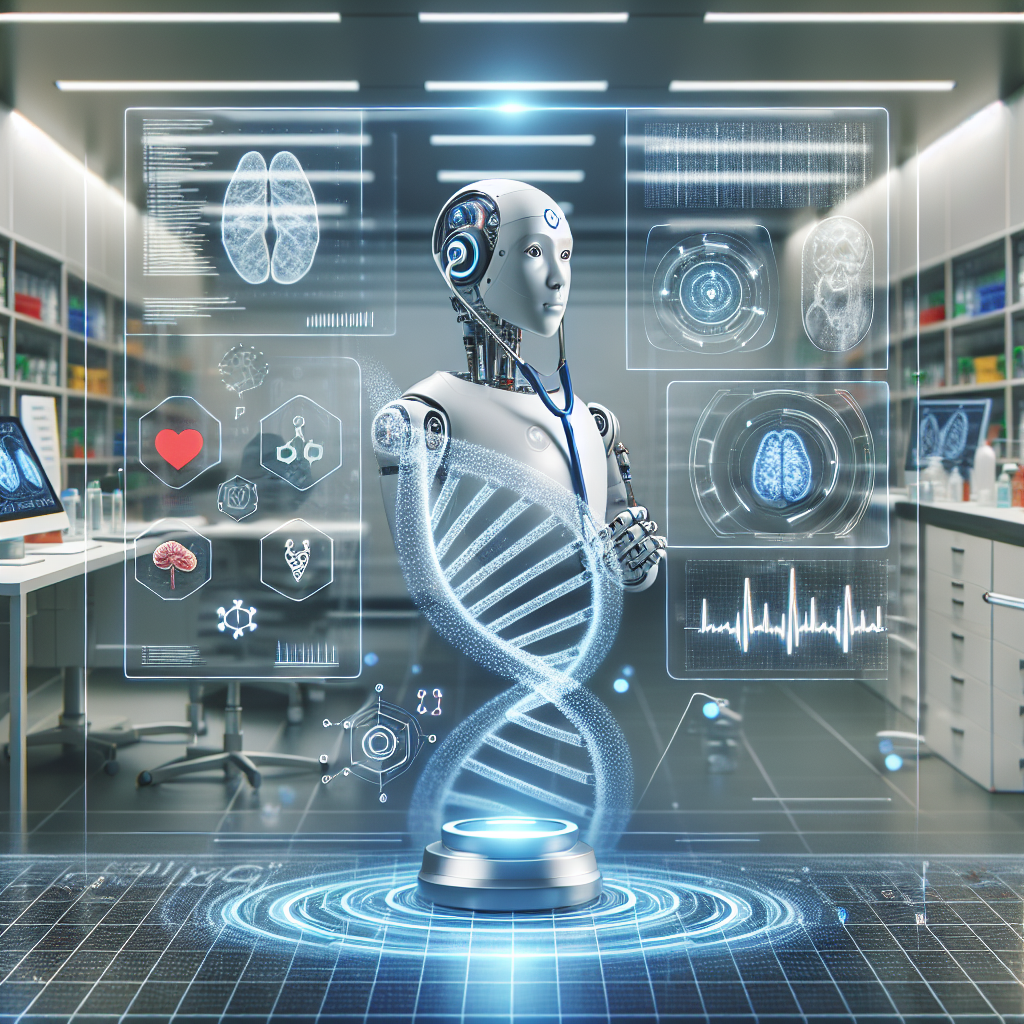In recent years, the field of precision medicine has been revolutionized by the use of artificial intelligence (AI). AI technologies have the potential to transform healthcare by enabling more personalized and targeted treatment strategies for patients. From improving diagnosis to predicting treatment outcomes, AI is playing a crucial role in advancing precision medicine. In this article, we will explore the benefits of AI in precision medicine and how it is reshaping the future of healthcare.
One of the key benefits of AI in precision medicine is its ability to analyze large amounts of data quickly and accurately. AI algorithms can process vast amounts of patient data, including genetic information, medical records, and imaging data, to identify patterns and make predictions that would be difficult or impossible for human clinicians to detect. This enables healthcare providers to make more informed decisions about patient care and tailor treatment plans to individual needs.
AI is also being used to improve disease diagnosis and risk assessment. By analyzing genetic data and other patient information, AI algorithms can help identify individuals who are at higher risk of developing certain diseases, allowing for early intervention and preventive measures. For example, AI-powered tools have been developed to predict the risk of cardiovascular disease, cancer, and other chronic conditions, enabling healthcare providers to take proactive steps to improve patient outcomes.
In addition to diagnosis and risk assessment, AI is also being used to optimize treatment strategies for individual patients. By analyzing patient data and medical literature, AI algorithms can help identify the most effective treatment options for specific conditions, taking into account factors such as genetic predisposition, disease progression, and treatment response. This personalized approach to treatment can lead to better outcomes and reduced side effects for patients.
AI is also playing a role in drug discovery and development. By analyzing large datasets of chemical compounds and biological pathways, AI algorithms can help identify potential drug candidates more quickly and accurately than traditional methods. This can lead to the development of new treatments for diseases that were previously difficult to treat, as well as more targeted therapies with fewer side effects.
Another benefit of AI in precision medicine is its ability to improve patient outcomes through predictive analytics. By analyzing patient data and medical records, AI algorithms can predict treatment outcomes and identify patients who are at risk of complications or adverse events. This enables healthcare providers to intervene early and adjust treatment plans to improve patient outcomes and reduce healthcare costs.
Overall, the benefits of AI in precision medicine are vast and far-reaching. From improving diagnosis and treatment to optimizing drug discovery and development, AI has the potential to transform healthcare and improve patient outcomes. As AI technologies continue to advance, we can expect to see even greater benefits in precision medicine in the years to come.
FAQs:
Q: How is AI being used in precision medicine?
A: AI is being used in precision medicine to analyze large amounts of patient data, improve disease diagnosis and risk assessment, optimize treatment strategies, and enhance drug discovery and development.
Q: What are the benefits of AI in precision medicine?
A: The benefits of AI in precision medicine include more personalized and targeted treatment strategies, improved disease diagnosis and risk assessment, optimized treatment plans, and enhanced drug discovery and development.
Q: Can AI predict treatment outcomes?
A: Yes, AI algorithms can analyze patient data and medical records to predict treatment outcomes and identify patients who are at risk of complications or adverse events.
Q: How is AI improving patient outcomes in precision medicine?
A: AI is improving patient outcomes in precision medicine by enabling more personalized and targeted treatment strategies, predicting treatment outcomes, and identifying patients at risk of complications or adverse events.
Q: What is the future of AI in precision medicine?
A: The future of AI in precision medicine is promising, with continued advancements in AI technologies expected to further improve disease diagnosis, treatment optimization, and patient outcomes.

